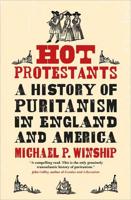Publisher's Synopsis
An ambitious work that details the events of the little-known King Philip's War, a two-year Indian rebellion that reduced many of New England's settlements to ashes and marked a crucial turning point in the battle for control of land in the New World. At the Pilgrims' first Thanksgiving in 1621, chief among the honored guests was Massasoit, the sachem of the Wampanoag. Fifty-five years later, in 1676, colonial soldiers would walk through Plymouth with their horrible spoils of war: the severed head of Massasoit's son, King Philip, on a stake. Philip had just been shot at the end of a bloody conflict in which at least 10 percent of the colonists had been killed and half their towns destroyed. The Native Americans suffered even more in their pivotal struggle against the English. Less than a generation after King Philip's death, devastated by disease and famine and thousands slain or sold into slavery, the native peoples of New England were all but gone. Three hundred years later, their fight for freedom is all but erased from the history books. King Philip's Indian War provides insight into a dark and formative period of America's past, being both an in-depth history and a guide to the sites where the great ambushes, raids, and bloody battles took place. What the colonists learned from the native warriors in the swamps and woods of New England would prove invaluable in their own fight for freedom 100 years later, and the colonist's retaliation for the war would become the model for how Americans would treat Native Americans for the next three centuries. Includes first-person accounts by Mary Rowlandson, Benjamin Church, and Captain Wheeler.








